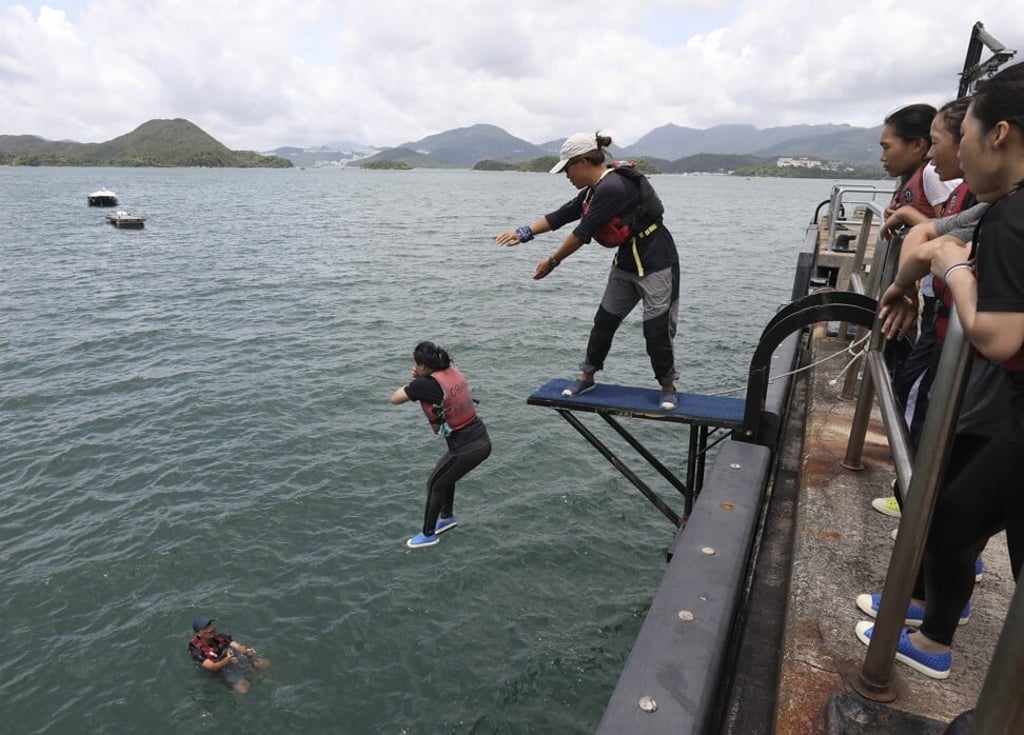Crisis looms for outdoor education provider Outward Bound in Hong Kong if cash crunch caused by protests, coronavirus persists
- Kayaking, climbing, camping out – Outward Bound has been challenging Hongkongers to prove themselves through outdoor activities for 50 years
- Its mission is to instil the ‘confidence to tackle the sort of situation that they would not face normally’. Now it faces a cash crunch amid protests, Covid-19

Just before lunchtime on a Friday in Hong Kong’s rural Sai Kung district, seven teenagers – wearing life jackets and chanting in unison to boost their spirits – are ready to launch themselves from a pier into the water three metres (nearly 10 feet) below.
This is the Jetty Jump, a rite of passage on almost every course at the Outward Bound (OBHK) centre, which has been throwing Hongkongers gently but firmly into the deep end for the past 50 years.
One by one, the girls edge forward, guided by the patient words and the tender hands of their instructor, Kaycee Chu Yan-lok, who stands just behind them. With a loud squeak followed by a noisier splash, the first to take the plunge is met with uproarious applause. She’s followed in moderately quick succession by five others. Then there’s a pause. Tears are rolling down number seven’s face. Crying turns to wailing.
Can she? Will she?

“I’d have been tempted to give her a short, sharp shove,” one spectator comments.